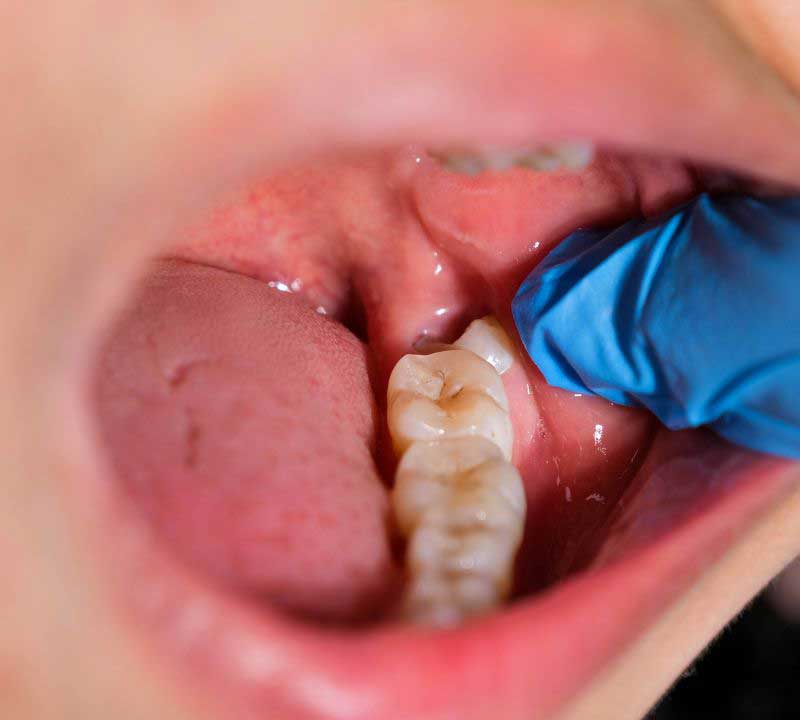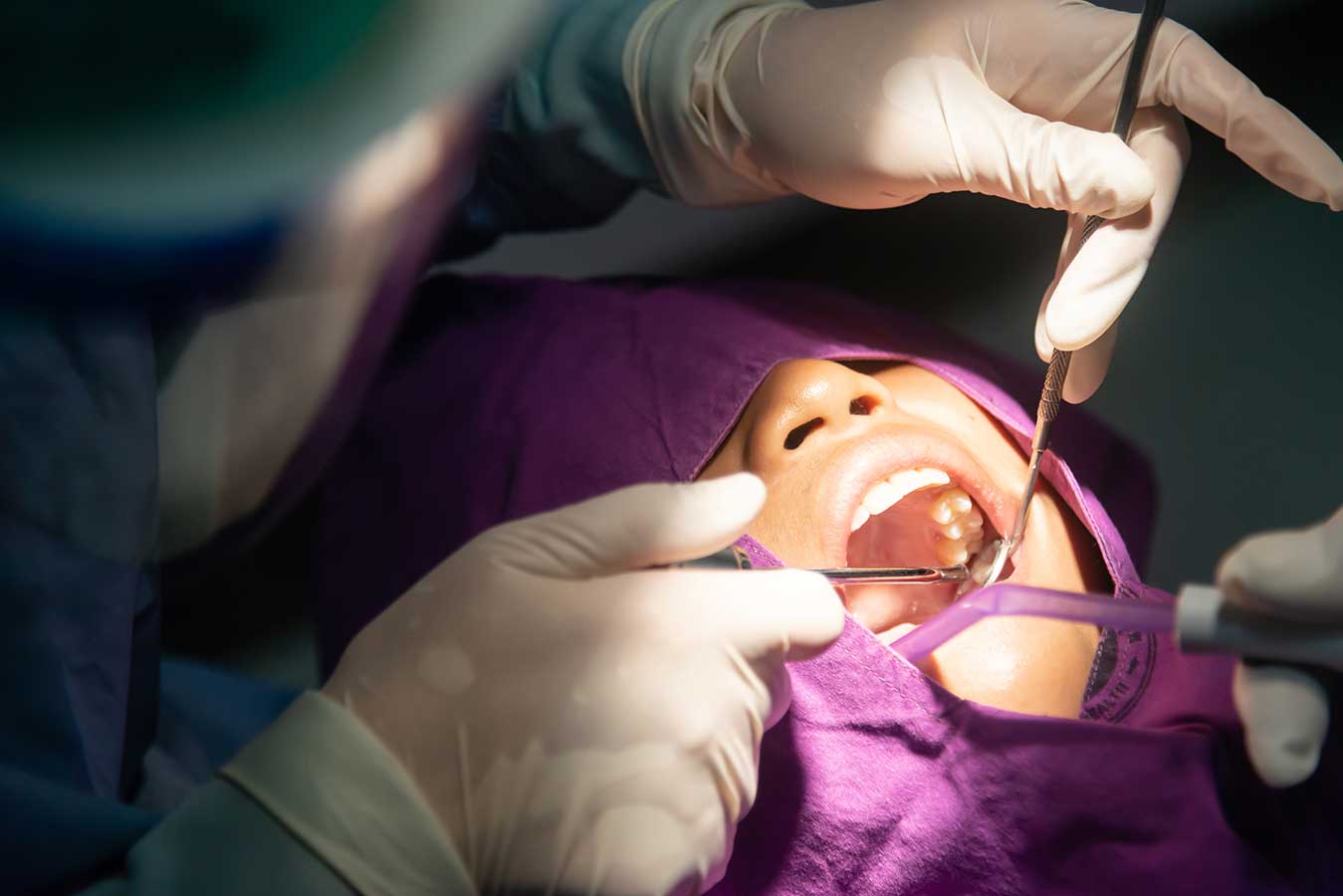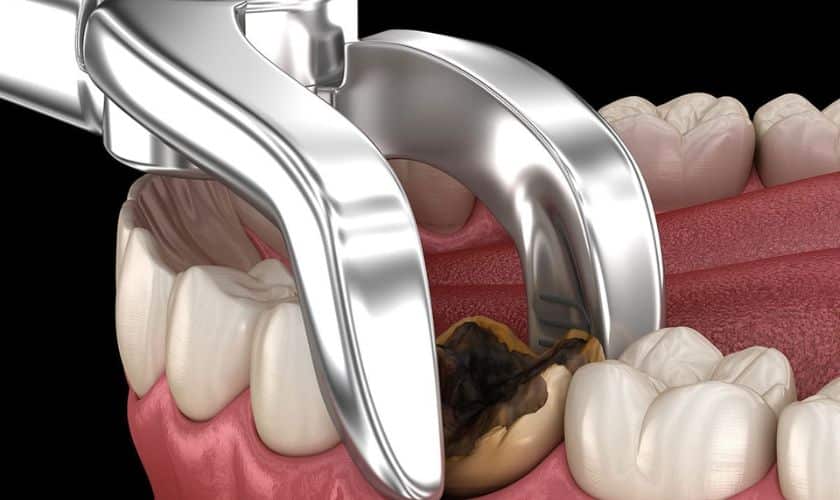Safe and Reliable Wisdom Teeth Removal Aspendale Specialists
Checking Out Various Sedation Options for a Comfy Wisdom Pearly Whites Removal Experience

Neighborhood Anesthesia
Local anesthetic is a commonly utilized method for numbing certain locations of the mouth during knowledge teeth extraction treatments. By administering a local anesthetic, such as lidocaine, a dental professional can ensure that the client continues to be pain-free and comfortable throughout the extraction process. Regional anesthetic works by temporarily blocking the nerves in the mouth, avoiding them from sending out pain signals to the brain. This permits the dental professional to do the extraction without causing any type of pain to the patient.
One of the key benefits of neighborhood anesthetic is its targeted numbing impact, which indicates that just the particular area being dealt with is influenced. This localized strategy minimizes the danger of systemic negative effects and permits for a quicker healing post-procedure. wisdom teeth removal aspendale. In addition, neighborhood anesthetic is taken into consideration to be a regular and risk-free technique in dental care, with minimal dangers entailed when provided by a qualified professional
Laughing Gas

Additionally, nitrous oxide is known for its quick recuperation time. Once the mask is removed, the results of the gas wear away swiftly, enabling patients to resume their typical activities without sticking around sedative results. This makes laughing gas a convenient choice for those who need to drive themselves home after the oral appointment. Nitrous oxide is appropriate for individuals of all ages, making it a flexible sedation option for wisdom teeth removals and various other oral treatments.
Dental Sedation

Among the key benefits of dental sedation is its ease of administration. Unlike intravenous sedation, dental sedation does not call for injections or needles, making it an extra comfy alternative for people with a fear of needles. Furthermore, dental sedation is thought about secure and efficient when carried out by skilled dental specialists. Nevertheless, it is vital for individuals to follow pre-operative guidelines offered by their dentist, such as avoiding consuming or eating before the procedure to ensure the sedative drug functions as intended.
IV Sedation
Provided intravenously by experienced doctor, IV sedation is a powerful technique used to generate a controlled state of deep relaxation and unconsciousness throughout dental procedures. Unlike dental sedation, which can be uncertain in its effects, IV sedation enables precise control over the level of sedation, making it a perfect option for complex treatments like wisdom teeth extractions.
During IV sedation, a sedative medicine is delivered directly right into the blood stream with a blood vessel, allowing it to work rapidly and effectively. This approach makes sure that the client continues to be uninformed and comfortable of the procedure while still maintaining important features such as breathing and heart rate.
One of the key advantages of IV sedation is its capacity to give a deeper degree of sedation contrasted to other approaches, making it especially appropriate for patients with high degrees of anxiety or those going through considerable dental work. Furthermore, the effects of IV sedation generally disappear slowly after the procedure, minimizing the likelihood of grogginess or sticking around negative effects. On the whole, IV sedation offers a efficient and risk-free alternative for guaranteeing a comfortable and worry-free experience during knowledge teeth extraction.
General Anesthesia
Having actually talked about the advantages of IV sedation for knowledge teeth removal, the application of general anesthesia gives a different choice for people needing a much deeper degree of unfamiliarity during oral treatments. General anesthetic causes a controlled state of unconsciousness, making certain the client feels no discomfort or discomfort throughout the extraction process. This approach is especially useful for people with severe oral anxiousness, complex medical needs, or those going through numerous removals simultaneously.
General anesthesia is provided by a trained anesthesiologist who closely monitors the person's essential indications throughout the procedure. It entails the usage of intravenous drugs or breathed in gases to generate a state of unfamiliarity. While under general anesthesia, the patient will not recognize the surgery, experience any kind of discomfort, or have any recollection of the treatment afterward.
Although general anesthetic is risk-free when carried out by qualified specialists, it brings a slightly greater risk contrasted to various other sedation choices. wisdom teeth removal aspendale. Clients considering basic anesthesia for wisdom teeth removal must review the possible risks and benefits with their dental expert or dental cosmetic surgeon to make an informed decision based on their individual More Info requirements and case history
Final Thought
In conclusion, various sedation alternatives are readily available to guarantee a comfortable knowledge teeth extraction experience. Regional anesthetic is frequently used for numbing the specific area, while nitrous oxide supplies relaxation and pain relief. page Dental sedation and IV sedation deal deeper degrees of leisure, depending on the client's demands. General anesthetic can be used for much more complex situations. It is essential to speak with your dentist or oral cosmetic surgeon to determine one of the most appropriate sedation option for your treatment.
Nitrous oxide is appropriate for people of all ages, making it a flexible sedation alternative for wisdom teeth extractions and various other dental treatments.
Unlike intravenous sedation, oral sedation does not require needles or shots, making it an extra comfy choice for individuals with a concern of needles.One of the key benefits of IV sedation is its capability to supply a deeper level of sedation contrasted to other approaches, making it especially suitable for patients with high levels of anxiousness or those undertaking considerable dental job.Having reviewed the benefits of IV sedation for knowledge teeth extraction, the application of basic anesthetic provides an alternative option site for patients needing a deeper degree of unfamiliarity during oral procedures. Oral sedation and IV sedation deal much deeper degrees of leisure, depending on the person's requirements.